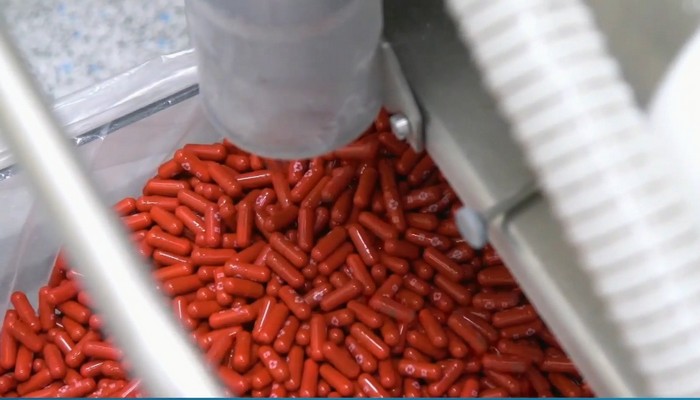
HAPPENING NOW:


An infectious disease expert at St. Joseph’s Healthcare Hamilton is hopeful about an antiviral pill for COVID-19 that reduces the risk of hospitalization and death by nearly 90 per cent.
Pfizer announced Friday its research that found patients receiving the drug along with another antiviral had an 89 per cent reduction in their combined rate of hospitalization or death after a month, compared to patients taking a placebo.
“It’s something that can be used in vaccinated and unvaccinated populations,” said Dr. Zain Chagla, who is also an associate professor at McMaster University. “This is going to be a disease where there’s going to be treatment options.”
The drugmaker said less than one per cent of patients receiving the pill needed to be hospitalized and no one died.
Participants were unvaccinated, with mild-to-moderate COVID-19, and were considered high-risk for hospitalization due to health problems like obesity, diabetes or heart disease. Treatment started within three to five days of initial symptoms and lasted for five days. Patients who received the drug earlier showed slightly better results, underscoring the need for quick testing and treatment.
Pfizer reported little detail on the side effects but said rates of problems were similar between the groups at about 20 per cent.
Despite the clear benefits of this COVID-19 pill, Dr. Chagla said vaccination will remain the best way to protect against the virus.
“Vaccines are the most cost-effective intervention internationally,” he said. “It may be a nice tool to use in preparation for a vaccine campaign. But the goal should still be a vaccine campaign for its efficacy and its protection.”
But with a large number of adults across the globe still unvaccinated, Dr. Chagla said effective, easy-to-use treatments will be vital to reducing future waves of infections.
Competitor Merck’s COVID-19 pill is already under review at the Food and Drug Administration after showing strong initial results, and on Thursday the United Kingdom became the first country to approve it.
Follow on Twitter.